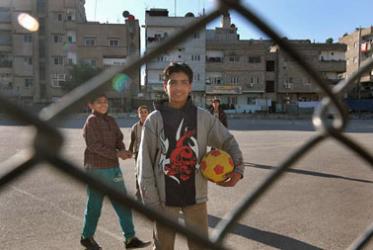Mostrando 10781 - 10800 de 12562
30 Abril 2008
WCC delegation met with Syria's Assad
24 Abril 2008
Fallecimiento de Krister Stendahl, eminente ecumenista
23 Abril 2008
WCC delegation visits Christians in the UAE
22 Abril 2008
The passing of Krister Stendahl, an eminent ecumenist
18 Abril 2008
Acoger al extranjero no es algo facultativo, dice el CMI
18 Abril 2008
"Ignored by the whole world" - a visit to Yambio, Sudan
17 Abril 2008
Bringing hope to a broken world
14 Abril 2008
WCC welcomes summit on Zimbabwe crisis
11 Abril 2008
Danish churches to dialogue with Muslims
10 Abril 2008










